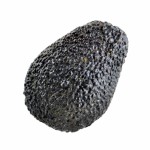If you’re looking to improve your diet to help not only shed a few extra pounds but also start feeling healthier on a day to day basis, it’s a must that you don’t overlook the importance of healthy fats.
Healthy fat provides a long term source of energy, will help your body absorb certain fat-soluble vitamins, and also helps to keep your hormones better regulated, ensuring that all your body processes are working in an optimized fashion.
One particular healthy fat that should be focused on in your menu is the avocado. Too many people either aren’t aware of just how healthy this food is or simply don’t think about it when in the grocery store.
Let’s look at why the avocado deserves to be a regular mainstay in your meal plan.
The Nutritional Profile
The avocado is a fruit but unlike most fruits, it’s lower in carbs and higher in fats – hence why we’re discussing it here today. Because of the fat content, it’s also much more calorie dense than say a cup of berries, so take care with how much you eat. Monitor your portion size to keep your total calorie intake for the day in check.
Per ½ cup serving of avocado, you will take in approximately 117 calories, 10.7 grams of fat, with only 1.6 of those being saturated. You’ll also get 6.2 grams of carbohydrates, however 4.9 of those are coming from fiber, so they will have very little impact over blood sugar levels.
One serving of avocado has just 0.5 grams of sugar, and will provide 1.5 grams of protein.
Another important nutrient avocados are well known for is their potassium. Each serving will provide 354 mg, making this very close to what you’d get with a banana.
They’re also going to provide you with a healthy dose of pantothenic acid, vitamin K, copper, folate, vitamin B6, vitamin E, along with vitamin C. So as you can see, they are a very nutrient dense food.
The Health Benefits
So what does all this mean for your health?
First, due to their high potassium content, avocado will be excellent for helping to promote more energy during exercise as well as for helping to regulate your blood pressure levels, keeping them in a more normal range. This in turn also supports good kidney health.
Avocados contain a decent dose of omega-3 fatty acids, which are an important nutrient for helping to keep inflammation under control. These fatty acids work in conjunction with phytosterols and carotenoid antioxidants to help provide relief for those who are suffering from arthritis and other inflammatory related conditions.
 Because of the fact the avocado is very low in sugar and rich in fiber, this makes it ideal for controlling your blood glucose level. It’s ranked very low on the GI index, so an ideal choice for those who are looking to prevent or control diabetes.
Because of the fact the avocado is very low in sugar and rich in fiber, this makes it ideal for controlling your blood glucose level. It’s ranked very low on the GI index, so an ideal choice for those who are looking to prevent or control diabetes.
The combination of healthy fats and fiber will also work extremely well to keep your hunger in check, making it easier to maintain a healthy body weight – or lose weight if that happens to be your goal. Those who include some healthy fat with each meal they eat will be far less tempted to snack between meals as the fat will slow down the digestion process, inducing greater satiety.
Finally, the combination of healthy fats, vitamin B6, as well as potassium make it very effective for promoting better heart health. Vitamin B6 especially is vital for keeping homocysteine levels lower, an important regulator of heart disease risk. This makes avocados very beneficial for those who are hoping to side step this health threat.
So as you can see, there are a number of important benefits to be had from including avocado in your diet.
Serving Suggestions
With the mild taste that the avocado offers, there are plenty of delicious ways you can serve it as you integrate it into your diet.
Some people are fine eating it just as it is, but most will want to mix it with food. Avocado can easily be chopped right into a salad where it will add a nice creamy taste.
Preparing some guacamole is also a terrific and common option with avocado and tastes great with some whole grain crackers or even raw vegetables.
Avocado can also be mixed with some low fat mayonnaise and used as a spread on your sandwich, or even just mashed alone and used by itself if you wish.
You may even want to consider blending a little avocado into a protein smoothie you’re preparing. It’ll add some fat to this typically low-fat shake and with the other ingredients in there, you’ll hardly notice the addition.
So make sure that you aren’t overlooking the avocado any longer. It’s a very healthy food that will make a great addition to many meals.